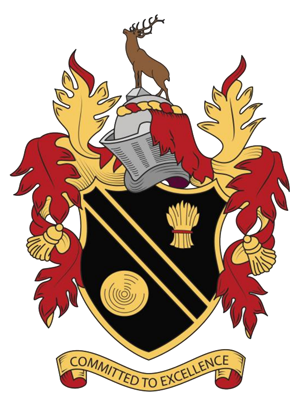Introduction
The MFL department at SHS prides itself on lively and engaging lessons that are highly interactive and purposeful. Our philosophy is that in order to be a successful linguist, you have to first enjoy everything that learning a language has to offer and hence we strive to deliver excellent lessons so we can help develop our future linguists. MFL teachers at SHS are extremely passionate about languages and we are totally dedicated to equipping all our pupils with the skills to speak and understand, as well as write independently. We offer annual trips abroad to France, Spain and China as well further cultural activities within the department such as celebrating European Day of Languages and Chinese New Year.
All pupils will study one of the 3 languages we offer, either French, Spanish or Mandarin at KS3 and can opt to continue at KS4.
Curriculum
KS3
| Year 7 Topics | Year 8 Topics |
| Introduction to French (Greetings, Numbers, Classroom instructions & items)
Family & Descriptions Education Home Life Holidays in the Past and Future
|
Hobbies
Media & Free Time Home Town Food & Shopping Health Visiting Paris Project
|
Year 7 pupils learn to talk all about themselves! Pupils learn initially through games and interactive activities, varying between whole class and pair and group work. Pupils learn important language skills such as using a bilingual dictionary. Speaking is a major focus and paying particular attention to expressing opinions is the cornerstone of their learning at this stage. Pupils will be challenged with being introduced to different tenses at this early stage also.
In Year 8, pupils begin to use language that becomes more complex as they develop longer sentences and paragraphs and are able to talk more confidently. Pupils begin exciting and relevant projects about technology, shopping and their town and are progressively able to work more independently. They will use language for authentic situations and start in embrace the culture of France.
KS4
Year 9, 10 & 11 Options (3 hours per week)
Pupils can opt for GCSE French which is assessed through four exams (Listening, Speaking, Reading, and Writing) at the end of Y11 with two tiers for either Foundation (Grades 1-5) or Higher (Grades 4-9) level entry.
Pupils study the following themes across the three year GCSE:
Theme 1: Identity and culture
Theme 2: Local, national, international and global areas of interest
Theme 3: Current and future study and employment
The pupils will study the following topics based on these 3 themes.
| Year 9 | Year 10 | Year 11 |
| Family & Relationships (Theme 1)
Music, TV, Film (Theme 1 Sports & Hobbies (Theme 1) Festivals (Theme 1 Holidays (Theme 2) |
School & Education (Theme 3)
Further Education, Careers & Future Plans (Theme 3) Home Town (Theme 2) Environment (Theme 2) Technology (Theme 1) |
Healthy Living (Theme 2)
Social & Global Issues (Theme 2) Marriage & Partnership (Theme 1) Revision |
The Four Exams:
Listening (25%)
Foundation – 35 mins (40 marks)
Higher – 45 mins (50 marks)
Both include 5 mins reading time of the question paper before the listening stimulus is played. There are 2 sections to this paper; section A where question and answers should be in English and section B where questions and answers should be in French.
Reading (25%)
Foundation – 45 mins (60 marks)
Higher – 1 hour (60 marks)
This paper is split into 3 sections; section A where question and answers should be in English, section B where questions and answers should be in French and section C which is a short translation from French into English.
Speaking (25%)
Foundation – Between 7 & 9 mins, +12 mins preparation time (60 marks)
Higher – Between 10 & 12 mins, +12 mins preparation time (60 marks)
Both tiers include the following three components:
Role-play – 15 marks (2 mins at Foundation; 2 mins at Higher)
Photo card – 15 marks (2 mins at Foundation; 3 mins at Higher)
General conversation – 30 marks (3–5 mins at Foundation; 5–7 mins at Higher)
The preparation time is given so the pupils can prepare answers for the role-play and photo card. The general conversation will involve questions being asked by the teachers on two of the course themes.
Writing (25%)
Foundation – 1 hour (50 marks)
The Foundation writing paper expects you to be able to describe a photo, answer a 40 word question, complete a short translation from English to French and answer a 90 word question (from a choice of 2 questions)
Higher – 1 hours 15 mins (60 marks)
The Higher writing paper expects you to be able to answer a 90 word question (from a choice of 2 questions), answer a 150 word question (from a choice of 2 questions) and complete a short translation from English to French.
Exam Board
- AQA – GCSE French
Exam Dates
Internally assessed exams
- Y10 Mock Exams (Listening, Reading, Writing) – February
- Y10 Mock Exam (Speaking) – July
- Y11 Mock Exams (Listening, Reading, Writing) – November & December
- Y11 Mock Exams (Speaking) – January & March
Externally assessed exams:
- Y11 AQA GCSE French Speaking Exams – April (Y11)
- Y11 AQA GCSE French Listening & Reading Exams – May (Y11)
- Y11 AQA GCSE French Writing Exam – May (Y11)

